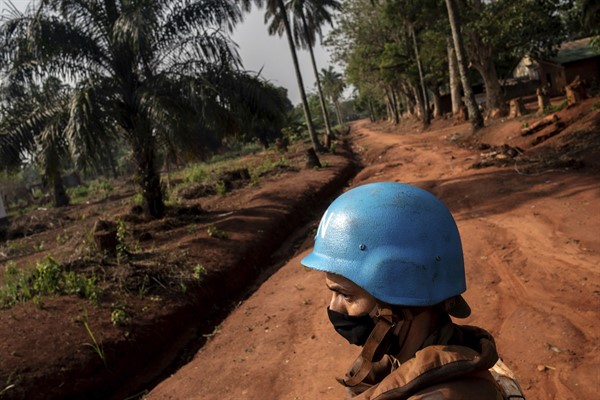Two weeks ago, in the aftermath of the Taliban’s takeover of Afghanistan, I argued that a United Nations peacekeeping mission should be considered as part of, or complementary to, a strengthened mandate for the U.N.’s existing political mission in the country, UNAMA. Since then, a group of over 20 scholars has been working with the University of Massachusetts-Amherst’s Human Security Lab to game out scenarios, consolidate the supporting evidence and make some research-backed guesses about whether peacekeeping should be on the table in Afghanistan today.
The emerging consensus in this group is that there are reasons to think it should, based on peacekeeping’s record of success in other places. To make it work, the U.N. would need to establish a role for itself in an intra-Afghan peace process aimed at averting a civil war between the Taliban and any remaining armed holdouts to the government that they are in the process of assembling. To that end, outside states should condition their recognition of the Taliban-led government on the group’s acceptance of intra-Afghan peace talks and a peacekeeping operation. That mission should be as large and strong as is acceptable to all parties, but even a small observer mission will very likely help. The U.S. and other NATO countries should contribute resources to it but not troops. Instead, Muslim-majority countries should take the lead on the ground, with inducements offered if needed.
Why might peacekeeping help? Lots of reasons. As Georgetown professor Lise Howard wrote in a Los Angeles Times op-ed this week, peacekeeping has historically been one of the global community’s most effective and underappreciated tools. A wealth of research shows that when neutral witnesses are present with the consent of the conflict actors, those actors are statistically likely to behave better and seek nonviolent forms of conflict resolution. In places where peacekeepers have mandates to protect civilians, the perception that they are on the side of civilians, rather than either warring party, reduces violence. And peacekeepers can help even when they’re relatively hamstrung vis-à-vis the warring parties; lots of violence in civil wars occurs among civilians, and peacekeeping helps tamp that down, too.

